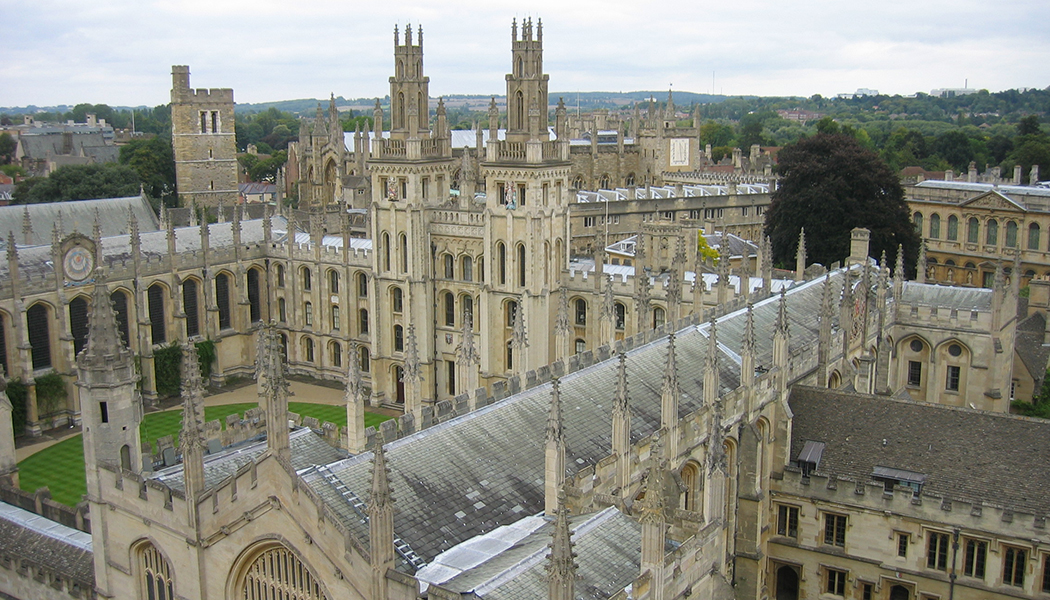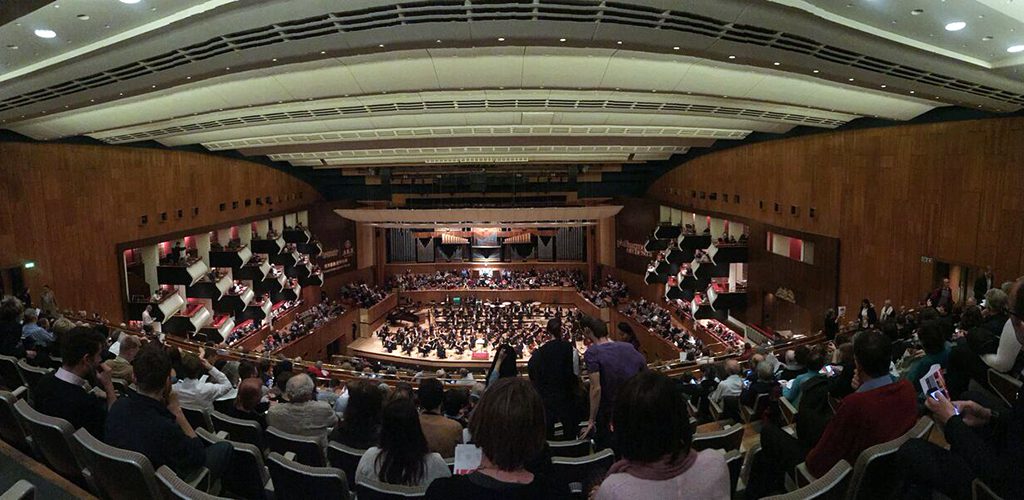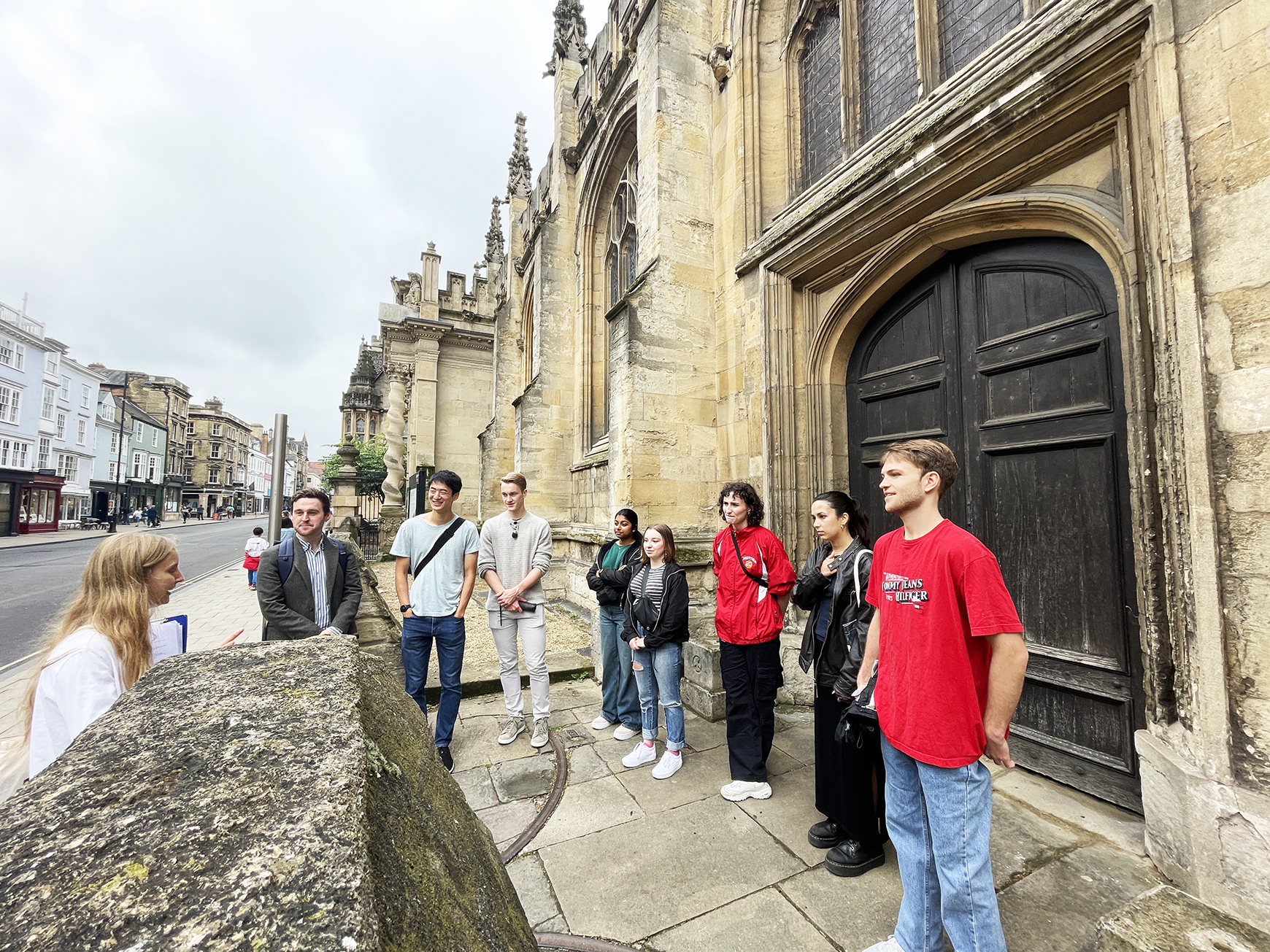Oxford, England
University of Oxford, St. Anne’s College: Premedical Program
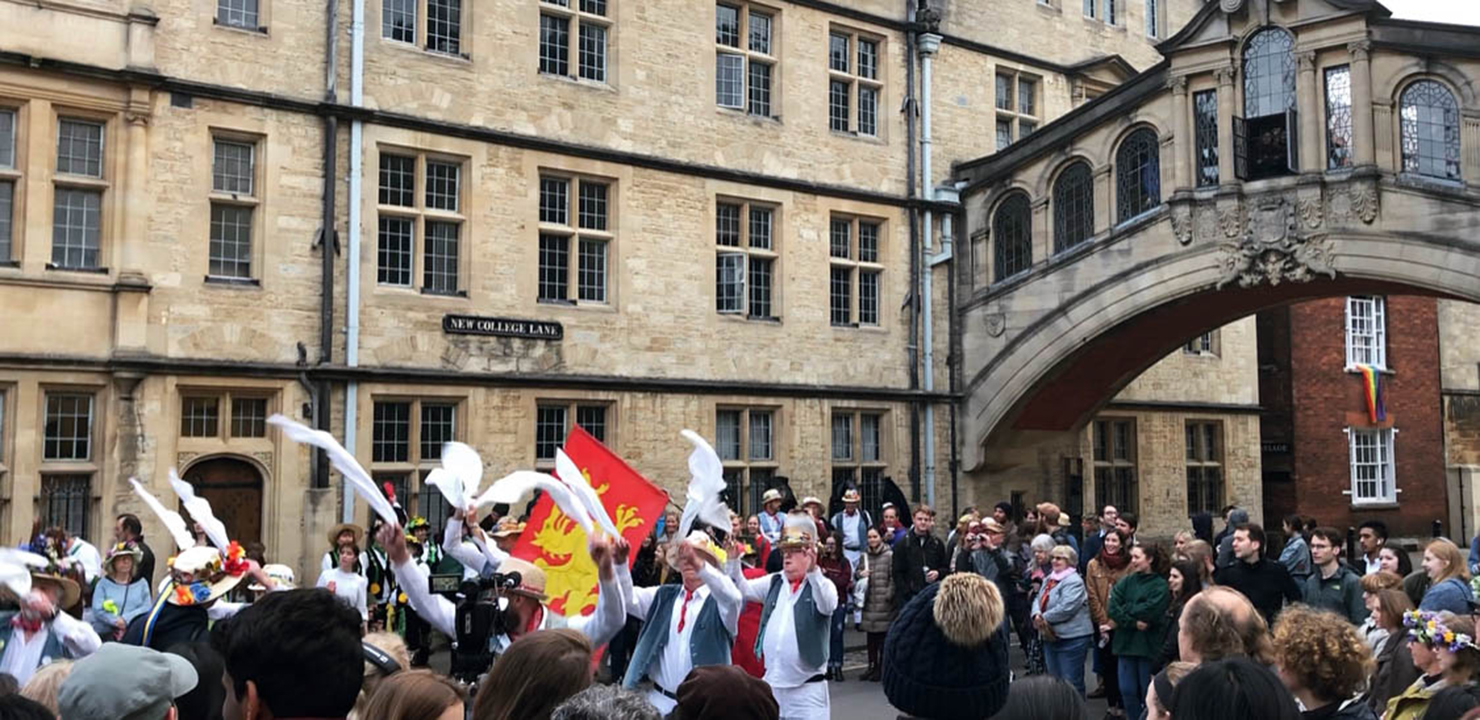

Program Overview
MOVE TOWARD A CAREER IN HEALTHCARE AT ONE OF OXFORD’S LARGEST COLLEGES
Recognized for excellence in the sciences, St. Anne’s College offers a competitive program focused on biochemistry and biomedical science with emphasis on independent study. And, as an Oxford student, you have access to outstanding faculty, libraries, and other resources.
Campus sits away from the most traveled parts of Oxford but also in easy reach. Located near the trendy Jericho neighborhood, you’re just a 15-minute walk from the city center.
While the Oxford experience is amazing all on its own, being in England is an incredible opportunity to explore UK culture. IFSA makes it easy, with IFSA excursions and activities, all included with no extra fees. Possibilities include a West End London theater performance, a cooking contest in the tent made famous by the Great British Bake Off, and a visit to Darcy’s Pemberly—really Chatsworth House—from the Pride and Prejudice film production.
Details at a Glance
Application deadline
Minimum GPA
3.70
Credit load
16–40
Housing
Residence Hall/Dormitory, Single Room Option
Instruction language
English
Language prerequisites
None
Visa required?
In some cases. Learn More.
Academics
CHART Your Course
Find the classes you need fast with CHART. Our easy-to-use tool shows you classes recently taken by IFSA students.
St. Anne’s College Premedical Program is distinguished by it’s focus on biochemistry and biomedical science, with an emphasis on independent study. At its heart lies the philosophy that human diseases and clinical treatments can be full understood only with a detailed knowledge of cellular molecular process. Biochemistry tutors from St. Anne’s College lead the program in collaboration with their colleagues from chemistry, physiology, pharmacology, and experimental psychology. Classes are taught through a combination of tutorials and lectures given by experts from St. Anne’s College and the entire University of Oxford system.
The program encompasses five broad themes:
- Structure and Function of Macromolecules
- Bioenergetics and Metabolism
- Molecular Biology and Genetics
- Cell Biology
- Physiology and Human Disease
Class details are available on St. Anne’s program webpage.
Students will earn:
- 16 U.S. semester credit hours for the Fall Term (September Seminar plus Michaelmas Term)
- 36 U.S. semester credit hours for the Academic Year (Michaelmas Term, Hillary Term, and Trinity Term)
- 40 U.S. semester credit hours for the Extended Academic Year (September Seminar, Michaelmas Term, Hillary Term, and Trinity Term)
St. Anne’s College Premedical Program is highly competitive and a minimum GPA of 3.7 is required. A stand-alone Spring Term (Hillary Term and Trinity Term) is not offered for this program.
Tutorial System
The hallmark of the University of Oxford academics is the tutorial system. The tutorial is typically a one-hour meeting between one or two students and the tutor. Tutorials usually meet once a week or every other week, and at the center of the tutorial is an essay on a topic the tutor previously assigned. The tutor will lead a discussion about the essay topic in an effort to provide new insights. At the end of the tutorial, the tutor will assign a new topic and may offer recommended reading. Tutorials are individually arranged, taking into account the subject to be studied and the tutor’s area of expertise. They are similar to independent study classes, but Oxford students bear even more responsibility for conducting independent research and maintaining good academic progress. The University of Oxford organizes weekly lectures on myriad academic subjects, and all students at the University, regardless of college, are welcome to attend. Lectures are not usually mandatory except for some science subjects, but tutors often recommend them as good supplements to tutorials and research.
September Seminar/Extended Academic Year
IFSA students studying on the St. Anne’s Premedical Program Fall Term arrive in early September for the September Seminar. This month-long program helps students better understand the Oxford system in advance of the Michaelmas Term.
Academic year students can also apply for the Extended Academic Year Program which includes the September Seminar. This is a particularly popular option for students who plan to apply to MD-PhD programs.
The September Seminar includes classes, workshops, and lectures on scientific writing, amino acids and proteins, RNA/DNA, the protein toolbox, the genetic toolbox, enzyme kinetics and statistics, cell biology, cellular neuroscience, and more. Students will have the opportunity to visit the Diamond Light Source, the UK’s national synchrotron science facility with a trip to a fragment screening lab. Learn how the synchrotron works and how the beamline generated is used to solve biological problems such as understanding protein structures.
Lab & Field Trip Fees
Please review syllabi and course materials when registering for direct-enroll classes. Certain classes may have a one-off lab or field trip fee disclosed in the syllabus or during the first meeting of the class. These fees are not included in your IFSA program fee. You will be responsible for these fees, whether they are billed and paid by IFSA or billed to you.
Your tutorial topics should be limited to no more than two subjects, and those subjects should be related. For instance, the tutors reviewing your application will look more favorably at a tutorial request form that has choices limited to politics and history departments. They would not be as impressed with a tutorial request form that lists choices in chemistry, economics, and art history.
APPLICATION REQUIREMENTS
Application Deadline
The application deadline is Dec. 15 of the preceding year for Fall Term, Academic Year, and Spring Term for all University of Oxford programs.
Eligibility
- You must be at least 18 years of age. Students under 18 may be accepted on a case-by-case basis.
- You must be currently attending or recently graduated from a U.S. or Canadian community college, technical college, two-year college, four-year college, or four-year university.
- Admission to Oxford colleges is highly competitive. Students typically study abroad at Oxford their junior year, having completed two (2) full-time years of study at their home institution before the start of the Oxford term. Oxford colleges may consider an applicant with just one (1) full-time year of completed study, but those students will be competing with students who have completed greater study in their specific subject area. A student with less than two years of completed study may be limited to first- and second-year classes.
Application Acceptance
This program gives preference to students applying for the Academic Year over students applying for just the Fall Term or the Spring Term.
Recommendation Letters
Your application to this program will require two (2) academic letters of recommendation on home institution letterhead.
TRANSCRIPT
Upon completion of your program, IFSA will send an official Butler University transcript to your home university with your coursework converted to the U.S. semester credit hour system. You will also have access to an unofficial transcript in your IFSA Student Portal. The transcript reflects classes taken, credits attempted, and grades earned during your term abroad. This service is included in your study abroad program at no additional cost. See our Transcripts page for more information.
Excursions
Activities and excursions are designed to pull you into the communities you visit and encourage cultural connections of every kind. There’s no extra fee to participate in these optional outings—everything is included in your program fee.
Below are examples from previous terms; outings may be different for your program. We’ll make every effort to run them all, but sometimes things we can’t control, such as local regulations and health protocols, get in the way. As result, we cannot guarantee activities and excursions.
Activities
- London Pandemics–Past and Present: This event will engage you with both an historic overview and a contemporary look at concepts of community health and global health, with a particular focus on London and the pandemic. You will attend a guest lecture at the IFSA London Flagship, followed by the John Snow Cholera Tour. This tour will take you to the nearby streets of Soho to visit important sites in the story of Dr. Snow and the cholera outbreak in 1854.
- London Statue Walk: This walking tour includes stops at some of London’s most iconic statues as well as some of its most obscure, weaving in historical, cultural, literary, and political threads as it seeks to put the past into dialogue with the present.
- Homelessness in London–A Dialogue: This event will explore the realities of homelessness in London from three perspectives. First, you will participate in a dialogue with guest speakers followed by a tour of Central London developed, curated, and delivered by vulnerably housed individuals through Unseen Tours.
Excursions
- The Uncomfortable Walking Tour: This tour is dedicated to raising awareness about the “uncomfortable” aspects of history. Tours focus on a specific theme and ask questions aimed at provoking new ways of seeing Oxford’s city landscape and history. Students will engage with the politics of memory in the city whilst uncovering histories of empire, class divides and gender discrimination, highlighting how these legacies have left an enduring impact on our modern lives.
- Visit to Oxford Castle & Prison: Explore the 1,000-year history of Oxford Castle & Prison. You will take a step back in time with costumed tour guides, bringing fascinating stories back to life. Engage with tales of Empress Matilda or the fate of Mary Blandy, one of the prisons’ most famous criminals. You can touch the stones where Oxford University is rumoured to have begun and stand in the birthplace of King Arthur.
- The Pitt Rivers Museum Tour: Go behind the scenes at one of Oxford’s most popular attractions, famous for its period atmosphere and outstanding collections from many cultures around the world, past and present. Receive a private tour of the museum founded in 1884 by Lieutenant General Augustus Pitt Rivers, who donated approximately 22,000 items to be displayed. The collection has now grown to 500,000 items, many of which have been donated by travellers, scholars, and missionaries from across the world.
- Cotswolds Villages and Blenheim Palace Day Trip: The Cotswolds are designated as an Area of Outstanding Natural Beauty. The famous picturesque villages of mellow honey-colored stone, gentle hills, peaceful pastures, and winding rivers offer a contrasting backdrop to engage with stories about the bloody battles and violent skirmishes that took place during the English Civil War. Next up is a visit to the UNESCO World Heritage site Blenheim Palace, home to the 12th Duke of Marlborough and birthplace of Sir Winston Churchill.
- Oxford Regatta Course River Cruise: Explore Oxford University’s famous regatta course on a Thames River sightseeing cruise. Hop aboard your sightseeing vessel in the heart of Oxford and cruise out onto the famous waterway. You’ll learn more about the city’s rich history from a different perspective, while sharing the waters with punts, university boats, rowing eights, and cruisers. The river cruise offers a chance for sightings of native river wildlife along the banks too.
Housing and Meals
Housing
Residence Hall/Dormitory, Single Room OptionMeals
Self-CateringDetails
Students live in the modern Ruth Deech building on the college campus, north of Oxford city center.
- Living space. Students live in single rooms with one bed, a desk, chair, and storage, and an attached, private bathroom. Students share basic kitchen facilities.
- Meals. There is no meal plan. Students either cook for themselves, purchase food on or off campus, or purchase meals at the college dining hall. Dining hall prices are inexpensive, so be sure to take part–it’s part of the Oxford experience.
- Additional details. Clean sheets provided regularly. Laundry on-site.
- Nearby. Oxford city center (less than 1 mile). University Parks, a 70-acre riverside green space. Bodleian Library (15–minute walk).
Dates and Fees
Get Started
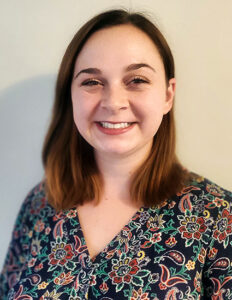
Kristen Clark
Enrollment Counselor
